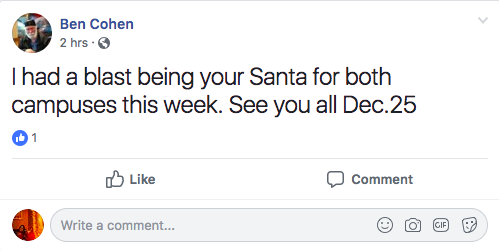
Program seeks to educate mental health service workers
By Angela Espinoza, News Editor
On November 13, Douglas College began offering online study material to educate students studying to work in the mental health field. The study material consists of six “webinars,” which students can access throughout BC.
“It’s a program which is really aimed at people who are already out working in the community in what we call sheltered employment programs,” said Douglas’ psychosocial rehabilitation coordinator John Higenbottam. “[Sheltered employment programs] provide employment services to people with serious mental illness.”
Higenbottam stated that the program is similar to a program for psychology students at Douglas known as BC Psychosocial Rehabilitation Advanced Practice. “Much like the advanced practice program, this program is really intended to provide practitioners with up-to-date knowledge and help them provide the best possible services to the client.”
The employment program is being recognized as a pilot project, launched with a grant of $75,000 for funding. Douglas was one of 20 BC post-secondary schools to receive the money as part of the Skills for Jobs Blueprint’s initiative to educate students with disabilities in specific areas.
“The program’s main purpose is to get jobs for people with serious mental illness,” said Higenbottam, “but they also have the tremendous benefit that if you get people with serious mental illness into jobs, they tend to do much better in terms of their community functioning.
“These programs have the benefit of really making it possible for people with serious mental illness to live in a community successfully without going in and out of hospitals.”
The content of the webinars “documents the effectiveness of these supportive employment programs,” presenting students with the skills and information they’ll need in “working with people in the community who’ve got serious mental illness.”
“Many of the people who are viewing the webinars are actual practitioners, people out there who’ve been doing this for years and are already experienced,” said Higenbottam.
Higenbottam added that although this employment program could be a one-time opportunity for students, its success could result in permanent or recurrent funding.
“Douglas has become a bit of a centre of excellence for psychosocial rehabilitation, and this supportive employment program is a good example of a psychosocial rehabilitation program,” said Higenbottam. The psychosocial rehabilitation program at Douglas College was created by Higenbottam to address the social needs of those suffering from mental illness, which can be taken in psychology students’ third or fourth years.
“One of the advantages is when [students] get out with those skills, they’re going to get jobs. All the people that we’ve been graduating from the program are doing quite well and getting jobs in their mental health settings. If people are interested in working in the mental health field, this is a good entry point.”
